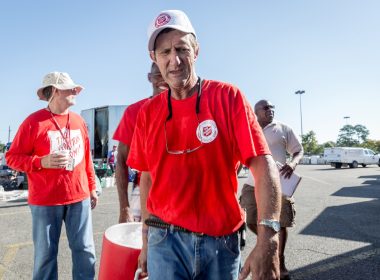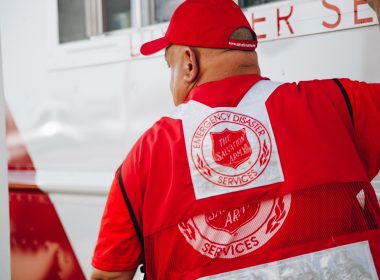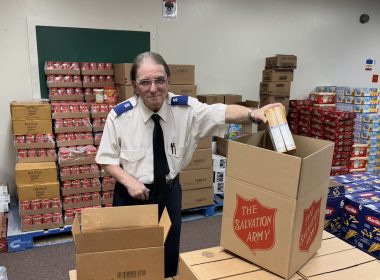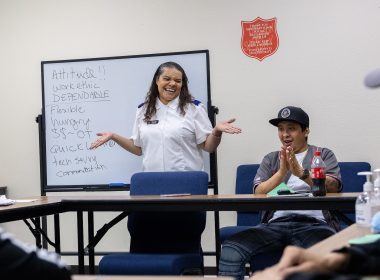On special assignment to Baton Rouge, Louisiana from the Central Territory, Steve Garrington describes the realities of red tape and the amazing variety of tasks referred to Salvation Army representatives working in disaster relief.
by Steve Garrington –
“What did you do to help the victims of Hurricanes Katrina and Rita?”
This is not a question I want to answer for my grandchildren. I was not on a Salvation Army canteen taking food, water, and snacks to the unfortunates still in New Orleans. I was not with the Baptists who brought chainsaws to clear away the fallen trees. I was not with the “Special Needs” branch of FEMA finding housing for the infirm, the handicapped and those who could not find a place for themselves. I was not even with the kids from LSU and a dozen other colleges who were picking up trash.
What did I do? My job was to represent The Salvation Army at FEMA headquarters. My job was to make things happen. My job was to cut through red tape. When something wasn’t happening, when something was “falling through the cracks,” my job was to talk face to face with people and to get things done.
I was not armed with a shovel, hammer, a mop, or even a cup of coffee and a sandwich. I was armed with a laptop, three phones and a mountain of paper.
A typical day at FEMA
First thing this morning is a call from a school principal in Baton Rouge who needs school supplies and clothing for students relocated from New Orleans. This one is fairly easy––a quick call to the Baton Rouge Salvation Army commander locates school supplies that they will deliver. For clothing I contact a warehouse in New Iberia run by the Adventist Church. They promise to ship a couple of pallets of clothes to the school.
The next thing is to run down a semi load of pre-cooked chicken sent to a Salvation Army warehouse 20 miles west of New Orleans. EFS-6 (mass feeding) of FEMA wants to know if it arrived. Their driver did not note the delivery. Several phone calls later I am put in touch with a fork lift driver who remembers unloading the chicken. Another mystery is solved.
The big project
The Salvation Army is planning on moving our main kitchen and distribution point from LaPlace, Louisiana to a Baptist church in the center of New Orleans. This involves permission from FEMA, and trucks have to be borrowed to move the equipment. I arranged for a semi load of ice to be delivered the day before. Finding a refrigeration semi trailer known as a “refer” is far more difficult.
Even if I find one, I will have to arrange for someone to fill it with diesel fuel from time to time. I don’t want to waste money renting if I can find someone to loan us one or better yet, donate one.
Meanwhile I take a short walk to the USDA offices. Could they supply enough commodities to start our cooking in New Orleans? They are no longer distributing food, but explain I can call the State Food Distribution Office. “Mike” makes those decisions, and he won’t be in until tomorrow.
Special needs
There is a “special needs” team here; one of their people drops by to ask about a hearing aid. At that point the representative from Goodwill breaks in with “We have some hearing aids”––another problem solved.
I look up to see a lady from the Operations section of FEMA. There seems to be a problem with my Saturday statistics. My figures don’t seem to match up with those from the “VOLAG” section. Fifteen minutes later we discover the figures from Friday had not been added into the VOLAG numbers.
A case worker just asked me if we could give a gentleman a ride from the Atlanta airport to his sister’s home. At the same time my boss in New Orleans calls with yet another request––could The Salvation Army borrow a fork lift and pallet jack from some group at FEMA? This is going to take a little time…







